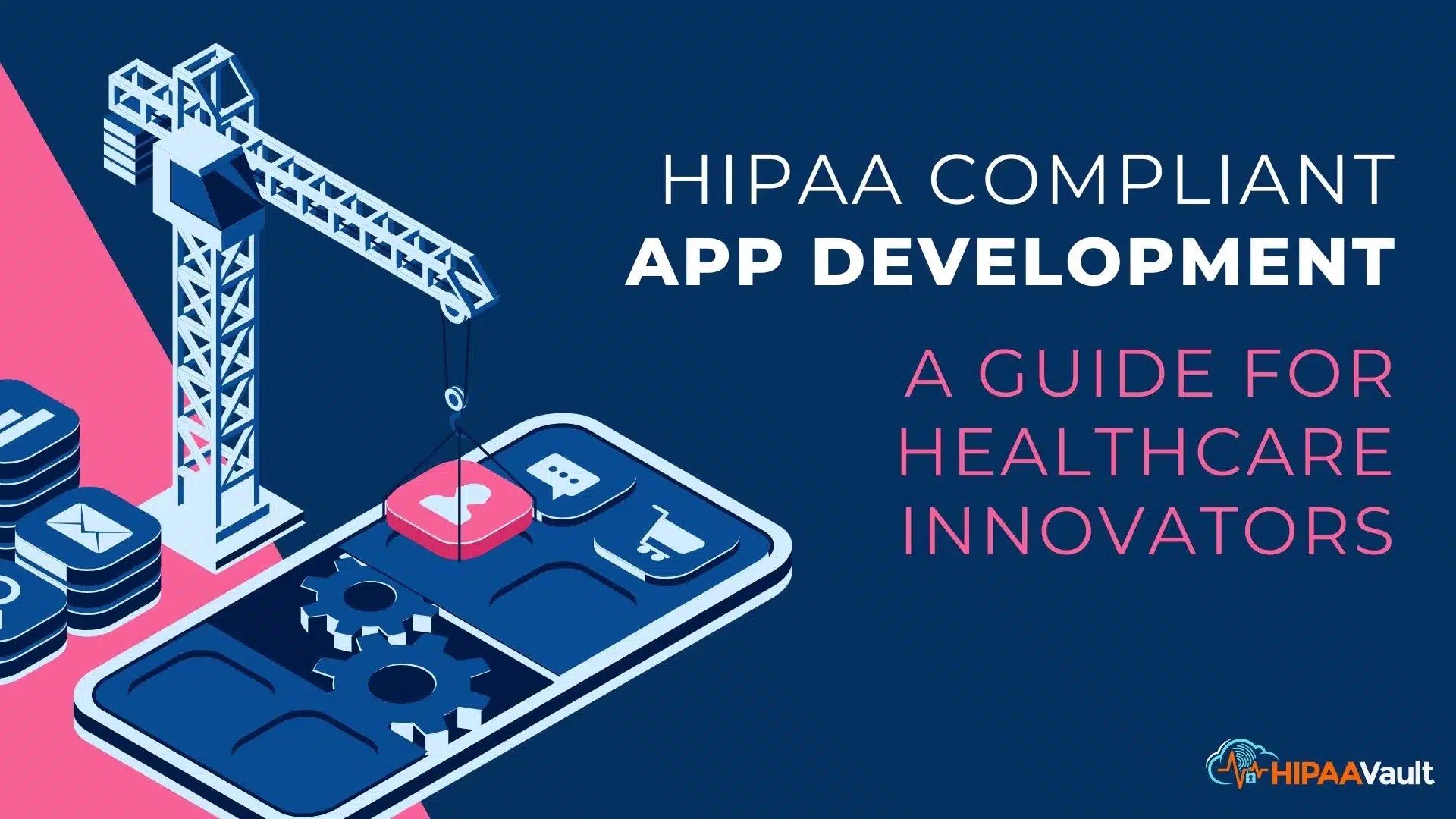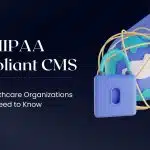
The healthcare industry is in the middle of a mobile-first revolution. Patients are using apps to track fitness goals, monitor chronic conditions, and even connect with providers remotely. Meanwhile, healthcare organizations are adopting mobile apps to improve care delivery, streamline operations, and strengthen patient engagement. For developers and providers alike, this makes HIPAA compliant app development essential to protecting patient data and avoiding costly violations.
👉 If you’re planning a healthcare app, don’t take chances with compliance. Take a free consultation with HIPAA Vault and learn how we can secure your infrastructure from day one.
But what exactly does HIPAA compliance mean for app developers, and what features should your app include to meet regulatory requirements? Let’s break it down.
👉 Download our HIPAA Compliance Checklist to get started.
Why HIPAA Compliance Matters in App Development
The global mobile health market was valued at $50.7 billion in 2021 and is expected to reach $639.4 billion by 2028 [Fortune Business Insights]. With growth comes risk: healthcare remains the most expensive sector for data breaches, with an average cost of $10.1 million per breach in 2022 [IBM].
HIPAA (Health Insurance Portability and Accountability Act) establishes national standards for safeguarding protected health information (PHI). For app developers, compliance means building with security in mind—ensuring the confidentiality, integrity, and availability of patient data [HHS Security Rule].
Does Your App Need to Be HIPAA Compliant?
The answer depends on who uses the app and how. HIPAA applies to:
- Covered entities: healthcare providers, health plans, and clearinghouses.
- Business associates: any third-party vendor handling PHI on behalf of a covered entity.
If your app collects, stores, or transmits PHI, you are subject to HIPAA. PHI includes identifiers such as names, addresses, phone numbers, emails, Social Security numbers, medical records, and device IDs [HIPAA Journal].
Some personal fitness apps may not fall under HIPAA if data is used only for individual tracking. But the moment data is shared with a provider or health plan, HIPAA requirements apply.
Must-Have Features of a HIPAA Compliant App
To achieve HIPAA compliance, your app must implement safeguards across technical, administrative, and physical controls. Here are the essentials:
1. Secure Authentication & Access Controls
- Unique user IDs and role-based permissions.
- Multi-factor authentication (MFA).
- Automatic session timeouts to prevent unauthorized access.
[HHS Access Controls Guidance]
2. End-to-End Encryption
- AES-256 for data at rest.
- TLS 1.2+ for data in transit [NIST SP 800-52].
3. Audit Trails & Logging
- Track every login attempt, data access, and system change.
- Maintain immutable logs for compliance audits.
4. Data Integrity & Backup
- Ensure PHI cannot be altered or deleted without authorization.
- Regular backups with secure disaster recovery plans.
5. Scalable & Compliant Infrastructure
- Containerization (e.g., Kubernetes) for deployment efficiency.
- Cloud hosting designed for HIPAA compliance.
👉 HIPAA Vault provides HIPAA-compliant hosting with encryption, monitoring, and managed security updates—so your team can focus on innovation, not compliance overhead.
Finding the Right Partner for HIPAA Compliant Mobile App Development
Developing secure healthcare apps requires more than technical expertise. You need a partner with:
- Proven experience in healthcare compliance and security.
- Willingness to sign a Business Associate Agreement (BAA).
- A managed infrastructure that reduces risk and complexity.
Thousands of developers discover too late that configuring HIPAA-compliant environments on their own is overwhelming. From encryption to continuous monitoring, the workload is significant. That’s why many healthcare organizations choose to partner with a trusted HIPAA hosting provider.
👉 Ready to simplify compliance? Contact us today to discuss your app project with a HIPAA expert.
Testing & Maintaining Compliance Over Time
HIPAA compliance isn’t a one-time milestone—it’s an ongoing process. To stay compliant:
- Conduct regular risk assessments [HHS Risk Analysis Guidance].
- Implement penetration testing and monitoring to detect vulnerabilities.
- Train employees on phishing prevention and access security.
Maintaining compliance safeguards patient trust and protects your organization from costly penalties and reputational damage.
HIPAA Vault: Your Partner in Secure Healthcare App Development
Instead of building compliance infrastructure from scratch, you can inherit HIPAA Vault’s fully managed, HIPAA compliant hosting solution. From encryption and logging to container orchestration, we provide the backbone your healthcare app needs to scale securely.
👉 Talk to us to see how we can support your next healthcare innovation.
FAQs About HIPAA Compliant App Development
Do all healthcare apps need to be HIPAA compliant?
Not all. If your app processes PHI on behalf of a covered entity, HIPAA compliance is required. Personal-use wellness apps may be exempt unless data is shared with providers.
How much does it cost to build a HIPAA compliant app?
Costs vary depending on app complexity, but compliance measures (encryption, logging, audits) add to development costs. Using managed HIPAA hosting can reduce both time and expense.
What security standards must be implemented?
At minimum: end-to-end encryption, access controls, audit logging, backups, and safeguards aligned with the HIPAA Security Rule.



